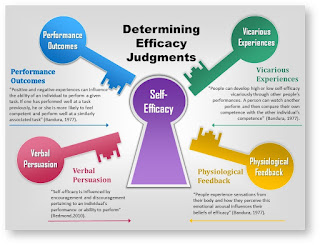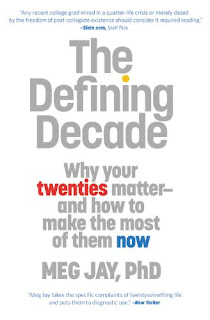Literature Review #5

For my final literature review, I will be looking at a study, conducted by Jon G. Thompson Jr., Crystal D. Oberle, and Jennifer L. Lilley, in "Self-Efficacy and Learning in Sorority and Fraternity Students." This study looks past the fact that self-efficacy is affects academics with students, but goes even further to see how it affects greek students specifically. The results were, "Greek students had lower GPAs and test scores, but higher learning effort ratings, test efforts ratings, and self-efficacy scores." This explains that although fraternity members might not get higher grades on average, they are more motivated to do better and try harder than those not in a fraternity. Also another correlation that found to go into my hypothesis for my final paper is that "... more importantly, self-efficacy was positively correlated with both effort to learn information and effort to do well on the test of that information." This clearly shows that there is




